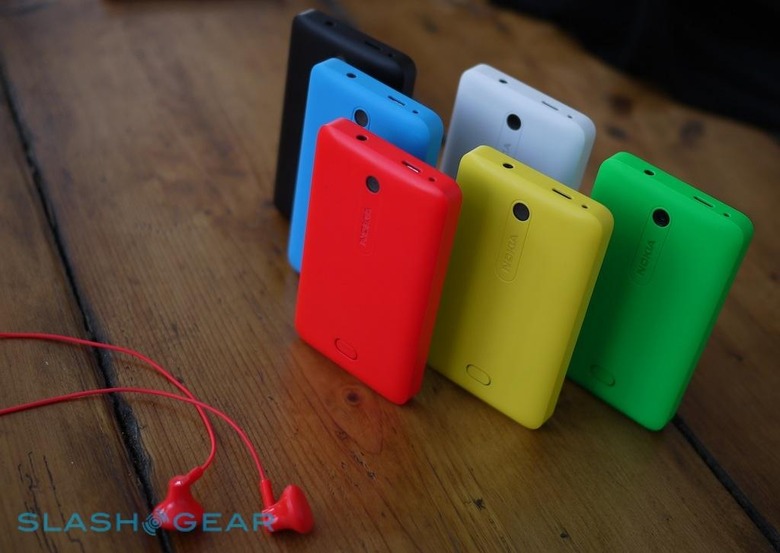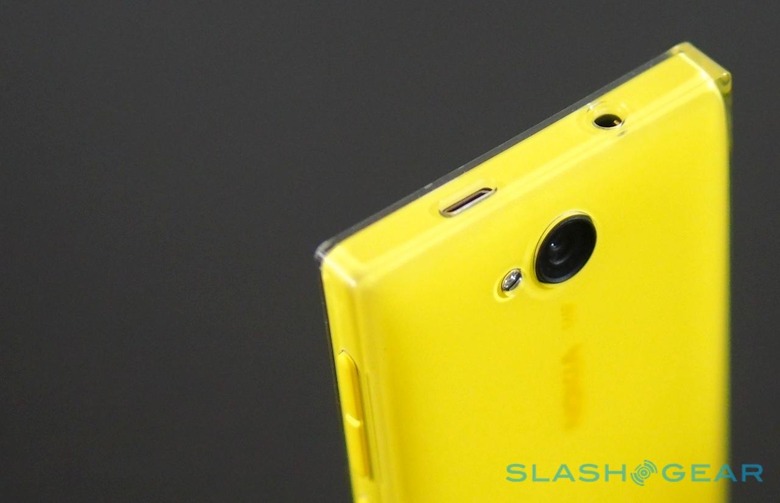Let's Be Realistic About Nokia's Android Plans
It's easy to get excited about the idea of Nokia adopting Android. Ever since the company first announced plans to shift from Symbian to Windows Phone in early 2011, many have questioned the wisdom of throwing in with Microsoft and its distant-third-place platform rather than Google's OS. Without fail, with each new Lumia – whether it be the 41-megapixel 1020 or the phablet-scale 1520 – there's a small but vocal crowd who'll say "I'd buy it, if it ran Android." Now, with a Nokia-badged Android device believed to be imminent, it's easy to get excited about the company's near-legendary build quality and the flexibility of the widespread software, but let's not get ahead of ourselves.
I've been guilty of wishing for a "Nokia + Android" love-in myself. In fact, I can recall telling Nokia's engineers back at the launch of the E7 in late 2010 how much I wished it was Android (back then at v2.2 Froyo) rather than Symbian that was running on the beautifully-constructed aluminum QWERTY handset. If I remember rightly, they just about managed to avoid rolling their eyes at me.
Windows Phone was a huge improvement over Symbian, certainly, but that hasn't stopped the Android longing from tickling the back of my mind as I've reviewed Lumia devices over the past few years. It's easy to see it as having promised to be the silver bullet to Nokia's woes: no more waiting for Microsoft to court Windows Phone developers and fill up the marketplace; no need for Nokia to build its own apps to patch over the gaps in functionality.

With Microsoft's acquisition of Nokia fast approaching completion, you could argue that the OS gamble paid off: if, that is, you see Lumia development being brought under the same umbrella as Windows Phone as a good thing. What that leaves, though, is a very different segment which could be targeted with its Android plans.
Remember Asha? Nokia surprised us with the Asha 501 in May of last year, a budget touchscreen handset that promised much of the functionality of a smartphone while stepping off the spec-treadmill. Nokia's bet was that there would be a market – and a big one – keen on the design associated with Lumia and the flexibility of a touchscreen, but unwilling (or unable) to afford a Windows Phone.
Microsoft will take Asha too when it grabs Nokia's Smart Devices devision, and it's expected to be the replacement to current Asha devices which are to be the beneficiary of this new embracing of Android. According to the most recent chatter, Nokia will take the open-source parts of Google's software but not the Google apps themselves, substituting things like HERE Maps for Google Maps, and Mix Radio for Google Play All Access.
Asha's existing core of a reworked S40 will be junked, so we're told, for a heavily-reskinned Android. The resulting OS might even look no different to what we've seen on more recent Asha devices, such as the 503, pared back to work on low-cost, low-power chipsets paired with minimal memory and still targeting a budget price tag.

The upside to Nokia is that persuading developers to port over apps for budget devices like Asha is likely to be a whole lot easier, since it'll have the entire Android cohort to target. It also unfortunately means that our dreams of a Lumia 1020 powered by KitKat are not going to come true.
There's certainly evidence that a market for low-cost Nokia devices exists; the ongoing success of the Lumia 520/525 is a sign of that. And though the device known variously as "Normandy" and "Nokia X" isn't going to challenge the Galaxy S5 or the LG G Pro 2 expected in the coming weeks, it could be enough to give companies some sleepless nights at the still-blooming low-end. Not for nothing has HTC conceded that it dropped the ball by ignoring entry level users; ironically it may be Nokia, not Samsung, Huawei, or ZTE, that sweeps in with Android to capitalize on that omission.
At first glance, then, you could argue there's little in Nokia's Android plans for those of us flirting at the cutting-edge of smartphones to get excited about. Nonetheless, as we've found – to some degree of surprise, maybe – when we've spent time with Asha handsets in the past, there's a lot to be said for a small, affordable, long-lasting, flexible little touchscreen semi-smartphone. Our lingering doubts were around apps, but if Nokia can fix that with its undercover OS flip-flop, we may have to think again before assuming Microsoft will junk Asha out of hand.
